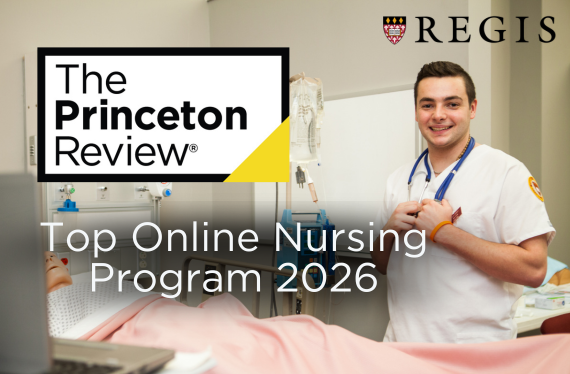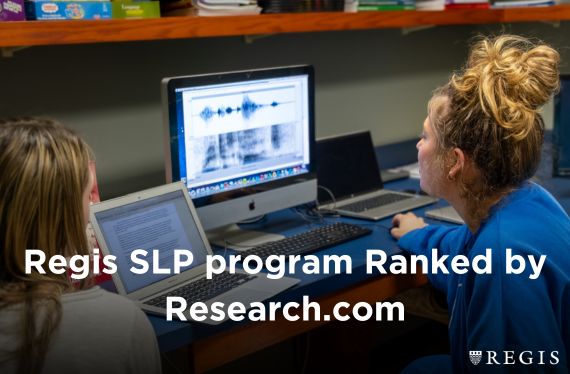On November 10, Regis College held its President’s Lecture Series on Health with an online panel discussion titled “Where Health Care Meets the Humanities.” Nearly 200 people attended the event, which focused on human-centered approaches to healthcare and the role of healthcare in the humanities.
The speakers included Jonathan D. Fitzgerald, PhD, assistant professor of humanities at Regis; Jean Watson, RN, PhD, FAAN, AHN-BC, internationally recognized nurse theorist, founder and director or the Watson Caring Science Institute; and Maura Spiegel, PhD, distinguished author and senior lecturer of English at Columbia University. The lecture was moderated by Julia Lisella, PhD, professor of English at Regis. Each speaker highlighted how the fields of medicine and the humanities have a lot to learn from one another.
Prof. Fitzgerald, who was instrumental in establishing the medical humanities program at Regis, began the panel discussion focusing on the ethics of care and empathy in the healthcare setting. He discussed the need of incorporating the “human” in healthcare, sharing several examples from literature to highlight how the humanities can inform the study of medicine. Prof. Fitzgerald encouraged students training for healthcare professions to branch out and take courses in the humanities. He also called for more opportunities for transdisciplinary collaboration and for the integration of literature into already existing nursing courses.
Prof. Watson, renowned for her academic research on the science of care and author of over 30 books on the topic, discussed how caring theory has been on the sidelines of the healthcare profession for far too long. She encouraged those hoping to become healthcare professionals to be present, authentic, and caring in their interactions with patients, as every individual deserves to be seen, and heard. These "transpersonal caring moments” can be important turning points for individuals receiving care. Prof. Watson cited the American Nursing Academy’s current definition of “nursing” as a sign that progress in the caring sciences is being made in mainstream healthcare, as it advocates compassion and recognizes the connection of all humanity.
The final speaker, Prof. Spiegel, shared a practical introduction to narrative medicine, an interdisciplinary field that utilizes powerful narrative skills from the humanities and the arts to address the needs of both patients and healthcare providers. She described how narrative medicine facilitators meet with small groups in clinical settings to present topics from the arts and humanities, asking participants to share their observations. Prof. Spiegel invited lecture attendees to participate in this process and experience firsthand how narrative medicine can help clinicians to better understand patients’ experiences and perspectives. Several attendees shared their narratives, demonstrating how impactful the use of narrative medicine can be.
The Regis College President’s Lecture Series on Health offers dynamic and thought-provoking discussions about contemporary health and wellness issues. Established in 2007 in partnership with Harvard Pilgrim Health Care, a Point32Health company, this unique series of free lectures features industry experts addressing timely topics for the benefit of health care professionals, students, and members of the public.
This President’s Lecture Series panel was approved for two contact hours for nurses by the American Nurses Association Massachusetts (ANA Mass.). ANA Mass. is accredited as an approver of nursing continuing professional development by the American Nurses Credentialing Center’s Commission on Accreditation.


